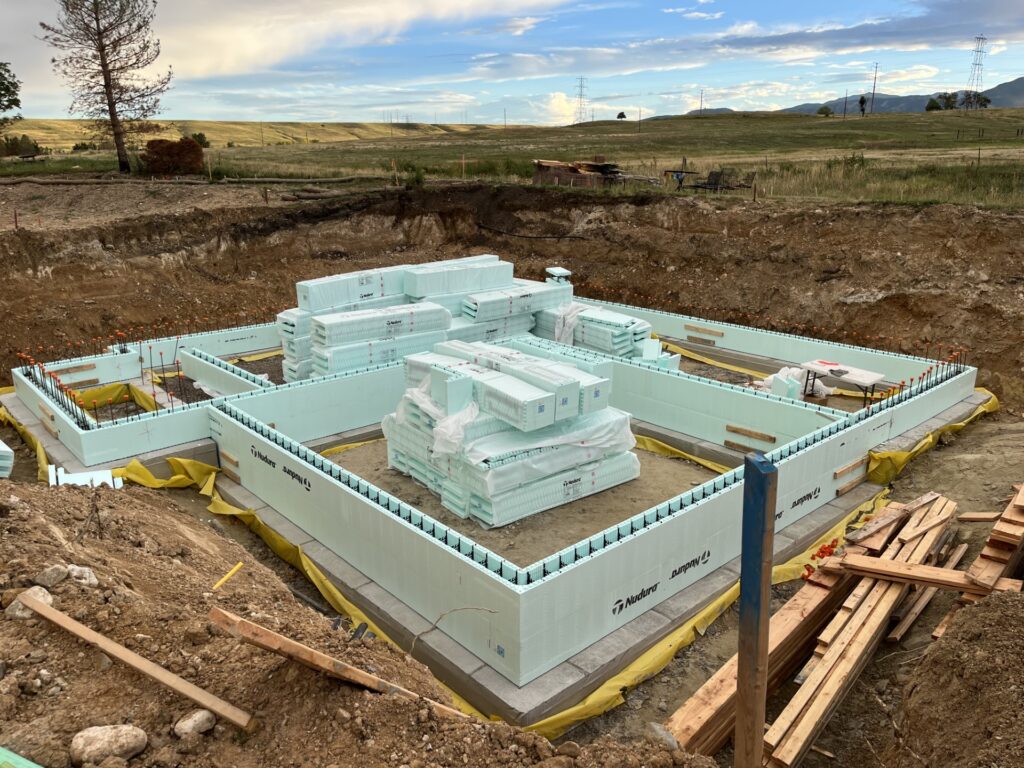The Financial Benefits of Energy Efficiency
When it comes to building a new home, homeowners today have more choices than ever before. From architectural styles to interior finishes, the opportunities for personalization are endless. However, beyond the aesthetic and design decisions, there is one critical factor that should never be overlooked: energy efficiency. Prioritizing energy efficiency during new home construction is not just a smart investment for the future; it is a meaningful step toward creating a more comfortable, sustainable, and cost-effective living environment. As the world becomes increasingly aware of the environmental impact of daily living, it is crucial for both builders and homeowners to recognize the importance of making energy-smart choices from the very beginning.
First and foremost, focusing on energy efficiency during construction provides long-term financial benefits that cannot be ignored. While it might require a slightly higher initial investment, the savings over the life of the home far outweigh the upfront costs. Lower energy bills are an immediate and ongoing advantage for homeowners who make energy-efficient choices. With high-performance insulation, energy-efficient windows, advanced HVAC systems, and smart design strategies, homeowners can significantly reduce their monthly utility expenses. As energy prices continue to fluctuate and often rise over time, building an energy-efficient home now ensures that future financial pressures are minimized, offering peace of mind for years to come.
Enhanced Comfort and Livability
Moreover, energy-efficient homes contribute to improved comfort and livability. When a home is designed with energy conservation in mind, it is better equipped to maintain consistent indoor temperatures year-round. High-quality insulation, properly sealed ductwork, and energy-efficient windows all work together to reduce drafts, eliminate cold spots, and ensure a more balanced indoor climate. In turn, homeowners enjoy a living environment that is not only more comfortable but also healthier. Better air sealing and ventilation systems help maintain superior indoor air quality, reducing the presence of allergens, pollutants, and moisture issues that can contribute to mold growth.
Positive Environmental Impact
In addition to personal comfort and savings, energy-efficient construction practices have a profound impact on the environment. Every home, large or small, leaves an ecological footprint. By using less energy for heating, cooling, and daily operations, an energy-efficient home helps to reduce greenhouse gas emissions and reliance on nonrenewable energy sources. At a time when climate change and environmental degradation are pressing global issues, choosing to build sustainably is a responsible and commendable decision. It signals a commitment not only to personal well-being but also to the greater good of the planet.
Building Energy Efficiency Into the Construction Process
Transitioning to the construction process itself, it becomes clear that achieving energy efficiency requires careful planning and collaboration from the very beginning. Builders must work hand-in-hand with architects, engineers, and homeowners to ensure that every decision made during the design phase supports an energy-efficient outcome. This might involve situating the home in a way that maximizes natural light, selecting materials that offer superior insulation properties, or choosing energy-efficient appliances and systems that align with the overall goal of reducing energy consumption.
The Importance of High-Performance Materials
Furthermore, the choice of building materials plays a significant role in determining a home’s energy performance. High-performance windows, advanced framing techniques, insulated concrete forms, and reflective roofing materials all contribute to minimizing energy loss. By integrating these materials during construction rather than attempting to retrofit them later, homeowners can achieve a higher level of efficiency and avoid the added costs of future renovations. Additionally, investing in technologies such as programmable thermostats, energy-efficient lighting, and water-saving fixtures can further enhance the overall performance of the home without compromising on style or comfort.
Increased Resale Value and Market Appeal
It is also important to recognize that energy-efficient homes often enjoy higher resale values. As awareness of energy costs and environmental responsibility continues to grow, homebuyers are increasingly seeking properties that offer lower utility bills and sustainable living features. A home that is built with energy efficiency at its core stands out in the market, attracting buyers who appreciate the long-term financial and environmental benefits it offers. In many cases, energy-efficient certifications, such as ENERGY STAR or LEED, can further enhance a home’s appeal and marketability.
Taking Advantage of Incentives and Rebates
Another compelling reason to prioritize energy efficiency during new home construction is the availability of incentives and rebates. Federal, state, and local governments often provide financial incentives for building energy-efficient homes or incorporating specific energy-saving technologies. These programs can help offset some of the initial costs associated with energy-efficient construction and make it even more financially attractive for homeowners. Builders who are knowledgeable about available incentives can guide their clients toward taking full advantage of these opportunities, further reinforcing the value of making smart, sustainable choices from the start.
Energy Efficiency: Building for the Future
Transitioning to the broader perspective, prioritizing energy efficiency is not just a trend; it represents the future of homebuilding. As building codes evolve and become more stringent in their energy requirements, homes that are constructed today must meet higher standards than those of the past. Builders who stay ahead of these changes by integrating energy-efficient practices into their standard operating procedures position themselves as leaders in the industry, offering their clients homes that are not only beautiful and functional but also built to meet the demands of a rapidly changing world.
A Source of Pride for Homeowners and Builders
When considering all of these benefits together, it becomes clear that energy efficiency is not an optional upgrade; it is an essential component of responsible home construction. By reducing energy consumption, homeowners can enjoy lower utility bills, greater comfort, and a healthier living environment, all while contributing to a more sustainable future. Builders who prioritize energy-efficient practices demonstrate a commitment to quality, innovation, and environmental stewardship, setting themselves apart in a competitive market.
Beyond the tangible benefits, there is also a sense of pride that comes from living in a home that is thoughtfully designed and responsibly built. Knowing that your home is not wasting valuable resources and is helping to preserve the environment for future generations adds a layer of satisfaction that goes beyond traditional measures of success. It is a reminder that thoughtful decisions made today can have a positive impact for years, even decades, to come.
Leading the Way Toward Sustainable Communities
As the homebuilding industry continues to evolve, those who embrace energy efficiency will lead the way in creating communities that are not only more resilient but also more sustainable. Families will live healthier, more comfortable lives, and homeowners will reap the financial rewards of lower energy costs and increased property values. At the same time, builders will build a reputation for excellence, innovation, and environmental responsibility that will serve them well into the future.
Conclusion: A Future Built on Smart Choices
In conclusion, making energy efficiency a top priority in new home construction is one of the smartest, most forward-thinking decisions homeowners and builders can make. It touches every aspect of the home’s life, from the comfort and well-being of its occupants to its long-term financial and environmental performance. Through careful planning, smart material selection, and a commitment to sustainable building practices, it is possible to create homes that meet the highest standards of quality and efficiency. The result is a win-win scenario for homeowners, builders, communities, and the planet alike. As we look to the future, it is clear that energy-efficient construction is not just the right choice — it is the only choice for those who want to build better, live better, and leave a lasting positive impact on the world.






27 Comments. Leave new
Very good partnership https://shorturl.fm/68Y8V
https://shorturl.fm/6539m
https://shorturl.fm/bODKa
https://shorturl.fm/oYjg5
https://shorturl.fm/a0B2m
https://shorturl.fm/A5ni8
https://shorturl.fm/a0B2m
https://shorturl.fm/a0B2m
https://shorturl.fm/A5ni8
https://shorturl.fm/A5ni8
https://shorturl.fm/bODKa
https://shorturl.fm/68Y8V
https://shorturl.fm/6539m
https://shorturl.fm/j3kEj
https://shorturl.fm/A5ni8
https://shorturl.fm/oYjg5
https://shorturl.fm/5JO3e
https://shorturl.fm/6539m
https://shorturl.fm/FIJkD
https://shorturl.fm/MVjF1
https://shorturl.fm/IPXDm
https://shorturl.fm/0oNbA
https://shorturl.fm/IPXDm
https://shorturl.fm/fSv4z
https://shorturl.fm/JtG9d
https://shorturl.fm/ypgnt
https://shorturl.fm/0EtO1